I was asked to be lead technical advisor to a TV show, that was originally called IF … Media 2012. Over the last six months of script alterations and shooting the direction has changed, but finally the docu-drama is airing at 11:20pm BBC2.
It’s part of the highly respected BBC’s IF … series and it examines where TV may go in the next seven years. The piece is designed to give you some further background.
There’s little doubt that the media is changing significantly … and we haven’t even reached 2012.
Computers turned office life upside down. Now they’re focused on changing entertainment.
Each stage of the process – creation, distribution, and consumption is being altered, apparently inextricably leading us to the realisation of the long-held digital mantra (repeat after me) – What You Want, When You Want, Where You Want or WYW3 as it’s may become known as.
For those of you who haven’t downloaded and faithfully listened to the podcast of this chant on your media player, let me clarify – you will be able to access/consume any piece of media (text/audio/video/etc), on what ever device you have handy, no matter where you are.
Sadly the dream starts to falls apart at this point, because your commercial music or videos will only play on equipment approved by the owner of the content (more on that later).
Change is Afoot – High Definition
The Consumer Electronics companies have been spending a huge amount of effort promoting High Definition TV (HDTV) around the content production industries. They’re telling everyone that 2005/2006 is the year that HD will start to become a major driver for buying new TV equipment.
For those who haven’t watched HDTV on a large screen – let me tell you, it’s impressive. It looks far more real that Standard Definition (SD) and makes a return to watching SD difficult.
Will the dazzle of HD blind the buying public to the loss of control they will have over what they previously thought of as “their media”?
What do I mean, loss of control? Well, there are changes underway which mean that what you previously did without thinking (eg. recording a TV show, backing up a DVD) will become difficult, and in a lot of cases illegal.
Encrypted to the Eyeball
The companies that produce/own audio recordings, video, TV shows and films don’t trust the general public (a director of a large film distributor used those very words to me). Because they don’t trust you, they want to ensure that throughout the value chain (their words – meaning from production, to you watching it), the content will remain encrypted. The only time it’s not encrypted, is when it leaves the screen or speakers and hits your eyes/ears.
This way of locking the content, called Digital Rights Management (DRM), can also restrict other factors such as, whether you can record or how long a recording can be kept for.
DRM protection is intrinsically flawed. It can be broken and traversed. Aware of this, Governments have been lobbied and they‘re making it illegal to examine how a DRM scheme might work.
In Europe this legislation is called the EU Copyright Directive (EUCD), and in the US, it’s the DMCA (Digital Millennium Copyright Act ).
Given this, it will be illegal and you will be open to prosecution, if you use a program to take a copy of disc if it has copy protection on it., unless you use an approved application. What you can do with your media will be directly controlled by its rights holder.
If you want to watch films in HD resolution in the future, you will need to ensure that your equipment (Set Top Box, screen, etc) all have a HDMI interface and are able to support HDCP (High-bandwidth Digital Content Protection).
After 1 July this year, it will be against US law to manufacture or sell equipment that is capable of handling/recording HD material, if they do not recognise what is referred to as the Broadcast Flag – a copyright flag that is controlled by the broadcaster. Indeed to qualify for a European “HD Ready” label equipment must support HDCP.
Old equipment might have problems. All those who have bought their dream 42” plasma screen, had better check around the back. If you don’t have full HDMI/DHCP support, your £5,000 screen will be of no use for HD content.
The Content Explosion
While content created by the current commercial entities, like studios, will become more restricted, the good news is that the places that we’ll be able to source media from will increase substantially. It won’t just be from what are currently thought of as “normal” sources.
With a TV connected to a broadband connection (and they will be broad by 2012), you will be able to access the content from around the connected world. Any subject you imagine will have content available about it.
If you’re finding it hard to visualise, think WH Smiths in 1970. Back then the whole range of magazines available to you would have been about 20. These days the groaning shelves take up half of the shop and there are 100’s of regular magazines available to you.
User Generated Content
We are in a period of an explosion of User generated content. It’s no news that this type of content is going to be huge, but it will also be diverse, plentiful and importantly, quite well indexed.
The first few rungs on the Bandwidth Ladder have been reached. Blogging tools, essentially word processors for the Web (they print Web pages not paper), have enabled people to simply generate huge amounts of content online.
Audio content is currently seeing a lot of increase through Podcasting. Already the breadth and depth of the programming available is impressive.
Video is less prevalent and some way off. The delivery and receipt of it are all possible. It’s the generation of original content that is very time consuming, as it is currently cumbersome.
The public creating programming by using pre-made segments of content, is far more achievable. But where do the segments come from?
The BBC Creative Archive is important
The Creative Archive – started as an inspirational idea. The BBC has thousands of hours of content (audio & video) in its archive, This content has already been produced and paid for by the licence payers of the UK.
The inspiration of pioneers of the project was to make this archive content available for people to be able to download, watch, re-edit and create new programming from, to share with the UK. Ideal.
Since the project was floated the BBC has been very good at making the right sounds about it – and have generated interest in the idea around the world.
I hope that the loss of Paula LeDieu a joint- head of the project will not be too big a blow. I also hope the BBC delivers what it has spoken about – a wide range of free programming, which can be freely edited.
To maintain its highly regarded position in the world, the BBC must not continue to make bold new media statements, only to not deliver them. Failure to do so will reflect badly on the whole of the BBC.
Ofcom – Hands off the Internet
Given the restrictions that will be hoisted on to users of media, it is all the more important that there is no restriction on flow of information that can come down your Internet connection. By 2012 this will include your radio and TV.
Having been technical supervisor for the show, seeing the script going through the twists and turns before coming to life – the decision to bring the dark side of IPTV (Internet delivered TV) to centre stage disappointed me.
I felt the programme helps the argument of those who want to control and restrict the Internet and the video/audio it could provide, missing the opportunity to highlight the many great advantages about having a free IP-based media.
I feel it’s important that the limitation of what people can access over the Internet is decided by the individual or household, not an external, overseeing Quango like OfCom.
Conclusion
As with any massive change, there are going to be advantages and disadvantages. I think the advantages of a new form of media, where everyone is able to contribute is a good thing. Any objectionable programmes like The Cage, while they may generate a lot of headlines, are ultimately insignificant when weighed against the advantages against a freer media.
It is vital to a healthy society that expressions are freely available to all, without restriction.
If you see the show, it would be great to hear your thoughts simon(at)Digital-Lifestyles.info.
>BBC IF …
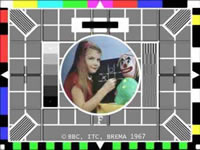 Following Ofcom publishing its new broadcasting code earlier this week, Russ Taylor of ofcomwatch outlines his reasons for disliking the R18 ban. He makes good points about the difference between IP delivered content and that which is broadcast. Simon
Following Ofcom publishing its new broadcasting code earlier this week, Russ Taylor of ofcomwatch outlines his reasons for disliking the R18 ban. He makes good points about the difference between IP delivered content and that which is broadcast. Simon 2. The decision also has a social impact: There was straight, uncritical reporting of the ban in the trade press. Privately, some people have told me that they thought the Ofcom research was shoddy. In fact, one former content regulator told me he was ‘angry’ with the decision. But, there seems to be a general intellectual consensus that there is a difference between ‘freedom of expression’, championed by British academia and the likes of the Guardian, and ‘porn-campaigning’ which is some lower form of freedom.
2. The decision also has a social impact: There was straight, uncritical reporting of the ban in the trade press. Privately, some people have told me that they thought the Ofcom research was shoddy. In fact, one former content regulator told me he was ‘angry’ with the decision. But, there seems to be a general intellectual consensus that there is a difference between ‘freedom of expression’, championed by British academia and the likes of the Guardian, and ‘porn-campaigning’ which is some lower form of freedom. Today, the US Court of Appeals for the DC Circuit ruled that the US FCC (Federal Communications Commission) does not have authority to prohibit companies from making computer and video hardware that doesn’t comply with the Broadcast Flag. This was to come into effect on 1 July, this year.
Today, the US Court of Appeals for the DC Circuit ruled that the US FCC (Federal Communications Commission) does not have authority to prohibit companies from making computer and video hardware that doesn’t comply with the Broadcast Flag. This was to come into effect on 1 July, this year. We equated it to either a door being slammed, or it being politely pushed closed, but left ajar. It appear as if it’s the big slam.
We equated it to either a door being slammed, or it being politely pushed closed, but left ajar. It appear as if it’s the big slam.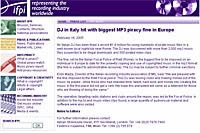 A “well known” Italian DJ could be hit with a record-breaking fine of up to 1.4 million euros ($1.8 million, £968,000) for using thousands of pirate music files in a nightclub near Rome, police said on Wednesday.
A “well known” Italian DJ could be hit with a record-breaking fine of up to 1.4 million euros ($1.8 million, £968,000) for using thousands of pirate music files in a nightclub near Rome, police said on Wednesday.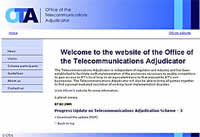 The Independent Office of the Telecoms Adjudicator (OTA) has issued an update on their progress of ‘local loop unbundling’ (LLU – the process of opening BT’s exchanges to competitors).
The Independent Office of the Telecoms Adjudicator (OTA) has issued an update on their progress of ‘local loop unbundling’ (LLU – the process of opening BT’s exchanges to competitors).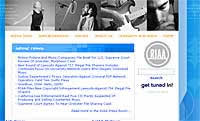 If they weren’t already unpopular enough with a large part of the online music file sharers, the Recording Industry Association of America (RIAA) has managed to score a spectacular PR own goal by suing a dead woman for swapping music files.
If they weren’t already unpopular enough with a large part of the online music file sharers, the Recording Industry Association of America (RIAA) has managed to score a spectacular PR own goal by suing a dead woman for swapping music files.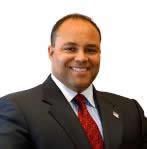 The Wall Street Journal is reporting that US Federal Communications Commission (FCC) Chairman, Michael Powell, will be leaving his position today.
The Wall Street Journal is reporting that US Federal Communications Commission (FCC) Chairman, Michael Powell, will be leaving his position today.